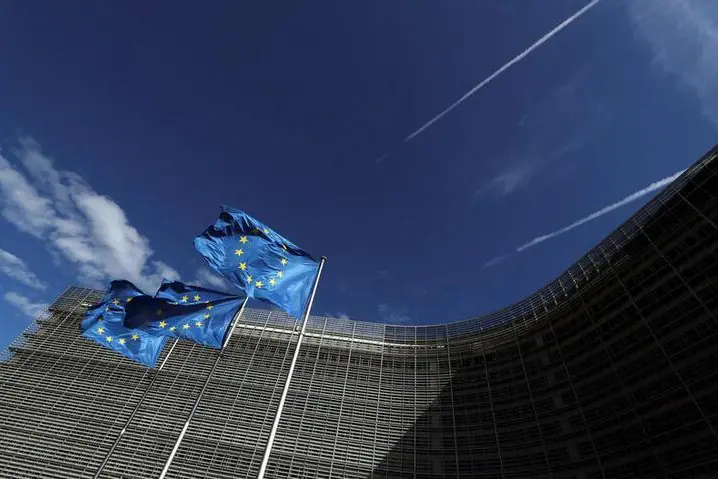PHOTO
BRUSSELS, June 23 (Reuters) - European leaders will formally accept Ukraine as a candidate to join the EU on Thursday, a bold geopolitical move triggered by Russia's invasion of Ukraine but a reminder that the 27-nation bloc will need a major overhaul as it looks to enlarge again.
Although it could take Ukraine and neighbouring Moldova more than a decade to qualify for membership, the two-day EU summit decision will be a symbolic step that signals the bloc's intention to reach deep into the former Soviet Union.
"Today the EU is sending a message of solidarity to the people of Ukraine that you belong to the European family, that you belong to the EU," Irish Prime Minister Micheal Martin said on arrival for the summit.
The move will kick-start the EU's most ambitious expansion since welcoming Eastern European states after the Cold War.
"All the people in Ukraine are watching and waiting for this decision," said Ivan Zichenko, a 34-year-old Ukrainian from the war-shredded city of Kharkiv, who now lives in Brussels.
"It's very, very important to raise their morale," he said as a few dozen people chanted "Ukraine is Europe" at a rally outside the Brussels building where EU leaders were meeting.
Behind the triumphant rhetoric, however, there is concern within the EU about how the bloc can remain coherent as it continues to enlarge.
After starting in 1951 as an organisation of six countries to regulate industrial production, the EU now has 27 members that face complex challenges from climate change and the rise of China to a war on their own doorstep.
Russian President Vladimir Putin says his "special military operation" launched in Ukraine in late February was partly necessitated by Western encroachment into what Russia characterises as its rightful geographical sphere of influence.
The EU's expected green light "is a signal to Moscow that Ukraine, and also other countries from the former Soviet Union, cannot belong to the Russian spheres of influence," Ukraine's ambassador to the EU, Chentsov Vsevolod, told Reuters.
"There are Ukrainian soldiers calling home from the front line and asking: what is happening with our candidate status? It's amazing how important it is for Ukrainian people."
BALKAN FRUSTRATION
While Ukraine and Moldova are expected to be welcomed into the EU's waiting room, Georgia will be given "a European perspective" but told it must fulfil conditions before winning candidate status.
Reticence over EU enlargement has slowed progress towards membership for a group of Balkans countries - Albania, Bosnia, Kosovo, Montenegro, North Macedonia and Serbia - whose leaders met their EU counterparts in Brussels in the morning.
Albanian Prime Minister Edi Rama said as he arrived at a meeting with EU leaders ahead of the bloc's summit: "Welcome to Ukraine, it's a good thing to give candidate status, but I hope the Ukrainian people will not have much illusions about this."
A draft of the summit statement showed that EU leaders will again give "full and unequivocal commitment to the EU membership perspective of the Western Balkans".
But Ukraine's fast track to formal candidate status has only served to increase their feeling of being sidelined, which carries the risk for the EU that Russia and China extend their influence into the Balkan region.
"The more the EU doesn't give a unified and a clear sign to the Western Balkans, the more other malign factors will use that space and that vacuum," Kosovo President Vjosa Osmani said.
German Chancellor Olaf Scholz said this week that the EU must "reform its internal procedures" to prepare for the accession of new members, singling out the need for key issues to be agreed with a qualified majority rather than by unanimity.
The requirement for unanimity often frustrates EU ambitions because member states can block decisions or water them down.
Despite waves of crises that have rocked the EU, from migration and Britain's exit from the bloc, the union remains popular, with a survey this week showing approval for EU membership is at 15- year high.
Still, public discontent is mounting over inflation and an energy crisis as Russia tightens gas supplies in response to sanctions, issues for the second day of the summit on Friday.
(Additional reporting by Phil Blenkinsop, Bart Biesemans, Christian Levaux, Francesco Guarascio, Jan Strupczewski, Charlotte van Campenhout, Kate Abnett and Sarah Marsh; Writing by John Chalmers and Ingrid Melander; Editing by Nick Macfie)





















